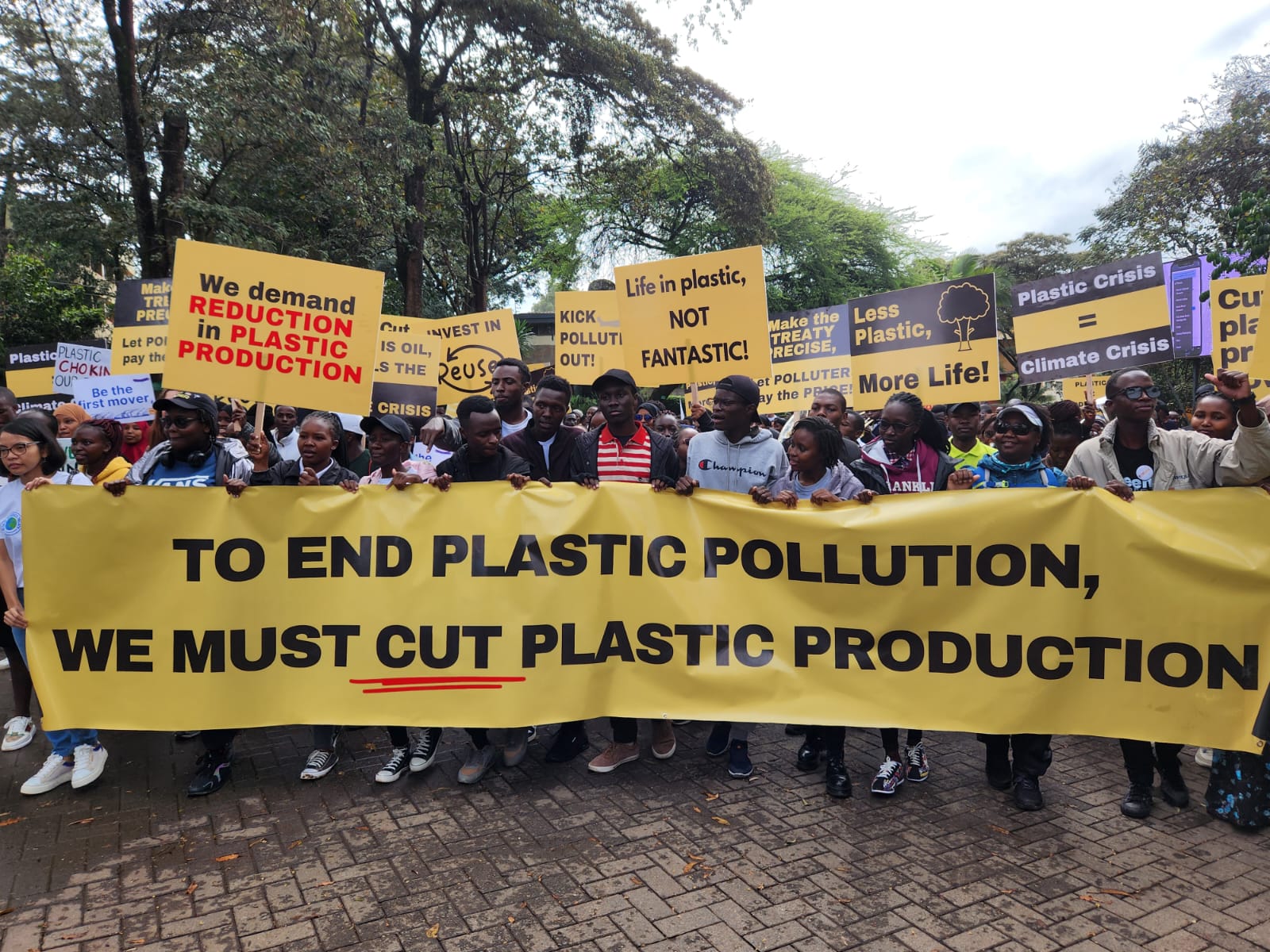WASHINGTON, DC, November 7, 2024 — U.S. members of the Plastics Treaty Civil Society and Rights-Holders Coalition call on the U.S. negotiating team to uphold and expand ambition in the plastics treaty negotiations (INC-5) this November in Busan. Despite a Trump-Vance victory and GOP control of the Senate, the U.S. negotiating team will still represent the Biden-Harris Administration at INC-5.
The plastics treaty is nearing finalization, and strong leadership by the U.S. negotiating team in Busan has the power to shift the entire treaty’s trajectory. The U.S. negotiating team should not bind itself to a treaty that they believe will pass a GOP-led U.S. Congress or meet Trump’s approval — history tells us this won’t matter.
The Biden-Harris administration’s signaled position changes supporting production reduction measures and the development of a list of chemicals of concern have already opened the door for other countries to come forward and take similarly ambitious stances. Now is the time for negotiators to follow through on these promises and advance a treaty text that will help end the plastics pollution crisis. Negotiators must work for the strongest treaty possible before adoption — not a treaty that can squeak by the U.S. Congress. Text must also include support for a ban on trade by non-parties to protect the instrument from the potential impact of U.S. withdrawal.
Negotiators should remember that regardless of who holds office, representatives of the U.S. government are obligated under international law to uphold universal human rights, including the rights to life, clean water, and a healthy environment. The manner in which the U.S. approaches INC-5 will shape international ambition and action on plastics for decades, whether the U.S. is a party to the treaty or not.
Communities around the world are living on the frontlines and fencelines of the crisis, from Gulf Coast families sited on the doorsteps of petrochemical giants to waste pickers fending for their livelihood on mass dumpsites in the Global South. In the United States, Black, Brown, Indigenous, and low-income rural communities are disproportionately impacted by the plastic industry’s degradation of their environment, economies, and health. The health of our planet and people around the world rests on the ability to stop the crisis, which must begin with a meaningful plastics treaty that takes steps to limit plastic production and associated toxic chemicals.
With or without the U.S. as a Party, the plastics treaty has the potential to create global momentum to address plastics’ toxic legacy and prevent future harm. We urge the Biden-Harris Administration to harness this moment by taking bold action for human health, the health of our planet, human rights, and our climate.
Our coalition looks forward to working with the Biden-Harris administration in the upcoming INC-5.
###
Cate Bonacini, press@ciel.org, +1-510-520-9109

